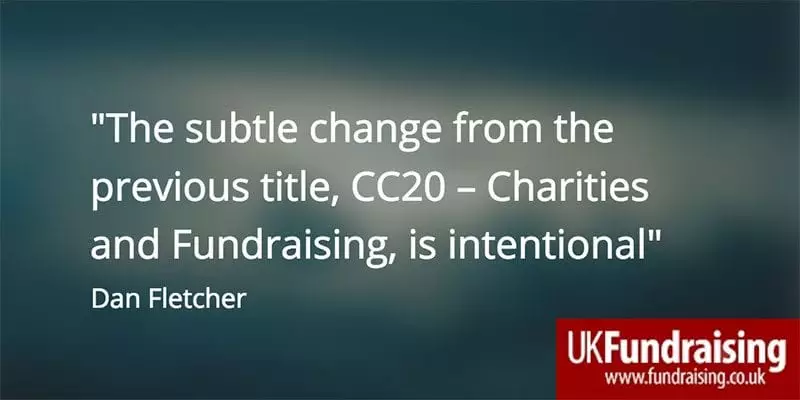The fundraising conundrum – why you need to get the balance right at board level
Since May 2015, the spotlight has rarely been off the world of fundraising, with much debate, opinion and analysis on the subject surfacing from all sides of the industry. The knotty problem of making self-regulation work will take some time to unravel and, coupled with the sheer complexity of the many fundraising regulations, it all contributes towards the challenge of operating in an already difficult environment.
The Charity Commission recently released its new guidance, CC20 – Charity Fundraising: A Guide to Trustee Duties. The subtle change from the previous title, CC20 – Charities and Fundraising, is intentional. This set of guidelines reflects the Commission’s changing purpose and increased regulatory authority enshrined in the recent Charities (Protection and Social Investment) Act 2016. But what does it mean for charity trustees?
In recent conversations with various experts, I have noticed much discussion around the balance between providing oversight and not being too operational. If a fundraiser is a board member, do other trustees abrogate responsibility for fundraising to the ‘expert’? Do trustee boards seek to recruit fundraisers because they’re essentially looking for a free bid-writer? What does the working relationship between the ‘fundraising’ trustee and the paid fundraising leader at the charity look like? How do the board members embrace their joint responsibility for compliance with fundraising regulation?
At the heart of these questions lies the paradox that charities – large and small – are essentially governed by “lay volunteers” who can’t possibly know everything that goes on within the charity, or have sufficient combined knowledge and experience to run every element of the charity’s work. The buck may well stop at the trustees’ feet, but when you read through the complexity of CC20, being certain that a charity is living up to expectations is a huge responsibility.
The Institute of Fundraising has recently conducted research among its members about the issues concerning fundraisers becoming trustees. Top level findings show that not enough fundraisers are taking trustee positions. To address this issue, charity CEOs could proactively encourage their staff to take up trustee positions at other charities; this would also offer additional benefits to their own charity.
Adrian Sargeant and Jen Shang’s 2013 research on Great Fundraising showed that charities raised more money when everyone in a charity ‘understood’ fundraising, not just the professional fundraisers. A ‘fundraising’ trustee has a responsibility to inform and educate fellow trustees into taking a strategic approach to voluntary income generation. They should also ensure that the fundraising values the charity espouses are consistent with the expectations implied by the financial targets approved by the board.
While the challenges of fundraising will continue to remain a key focus area for charities of all sizes, getting the balance right of trustees and fundraisers at a board level can only enhance a charity’s future prospects.
Dan Fletcher joined Kingston Smith Fundraising and Management, part of the accountancy firm, Kingston Smith LLP, in October 2014. Prior to that he set up and ran his own consultancy, from 2011, and has held leadership fundraising roles at St John’s Hospice, The King’s Fund, for hospital charity, enhance herts, and at the Foyer Federation. He sits on the Institute of Fundraising’s Learning and Development committee, is treasurer of the IoF’s Cultural Sector Network and is a trustee of Rethink Mental Illness. He tweets as @DanFletcherKSFM.
Advertisement




